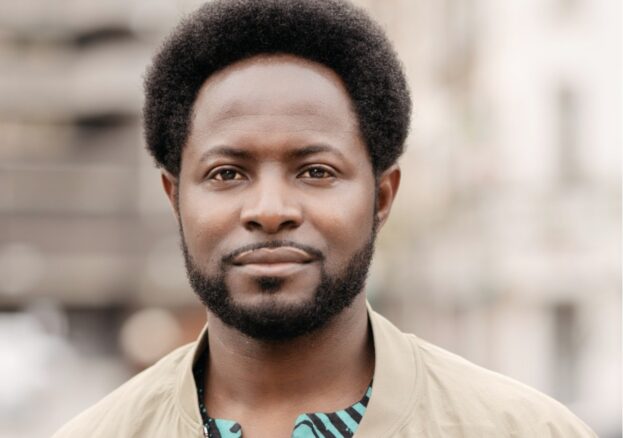
Dance Umbrella is returning to London again this year, how does it feel to be bringing it back for audiences?
I’ve had the pleasure and privilege of being a spectator, a performer, a guest programmer and now the Artistic Director and Co-CEO of Dance Umbrella, so I have a full understanding of what the festival means for artists and audiences on so many levels.
I also understand what the festival means for London as a global city as well as for audiences internationally. I’m building on the amazing legacy from my predecessors Val Bourne, Betsy Gregory and Emma Gladstone – their vision continues in this iteration.
What makes this festival different in comparison to the previous ones?
We are presenting ten UK premieres across nine theatre and outdoor spaces – there’s so much brand new work for people to see. The themes are all anchored in the lived experience of our artists, and there’s also a majority female and non-binary representation this year.
We’re always looking to present work that sits outside of the Western and traditional canon, so the festival moves and evolves as artists continue to redefine what dance and movement looks like.
We’ve also dedicated this year’s festival to Emma Gladstone, Dance Umbrella’s Artistic Director and CEO during 2014-20 who passed away earlier this year. Emma’s creative brilliance and ethical compass were always pioneering, whilst being aligned with a rapidly changing world.
So this year, we’re celebrating the past, but still always looking forward to the future.
Transformation, reflection and representation are the festival’s core themes. How will that translate into its programming?
Transformation happens when the work that is represented on stage moves the conversation around that theme forwards; themes this year include ideas of home, sexuality, gender norms and how to integrate the disabled body into mainstream dance. All of our programmed artists have reflected on their worlds and their lived experiences to create their works, and bring them to London.
And finally, representation is about London as a global city. We aren’t perfect but our multiculturalism is palpable and we can learn a lot about each other through movement and dance.
This edition will also serve as the fourth one also featuring a digital showcase. From an artistic perspective, which challenges have you faced in arranging theatre for such a different media?
A digital programme was a key part of Dance Umbrella Festival from even before I joined as Artistic Director. It’s all part of the conversation around how we make work, and who the work is for.
Digitally, audiences can see professional development workshops and live panel discussions to learn about the craft and career of choreographers. They can see animations and films from artists like Hetain Patel, Lea Anderson and Abby Z. We also have specially filmed professional insights available through our Choreographer’s Cut strand.
Have you found any further challenges while preparing this latest edition?
As an international festival presenting work in London, we tend to introduce artists to spaces, and support them to scale up their offering. Mamela Nyamza, for example, was part of Dance Umbrella Festival in 2011 with Hatched, and she is now returning this year with Hatched Ensemble, which she as scaled up include 11 dancers. It’s a joy to see her return, and we’re really proud to be able to bring her back to London.
We also do a lot of work to reflect on who is involved in the ecosystem within which we operate. Who is in the established conversation, and what responsibility does Dance Umbrella have to ensure that those people are represented? We work with the most iconic venues in London, so we like to make sure we’re presenting work that is truly representative of a lived experience, or a part of society.
Are there any particular shows you’d like to flag from this edition?
The whole festival, from beginning, middle, to end! It all speaks to each other, and has been designed to shift the audiences’ way of thinking from one show to the next. I really love it when audiences are curious and come and see work from artists they’ve never seen before.
Why should audiences come to see the 2024 Dance Umbrella Festival?
You will find something amongst our programming that will shift your perspective of what dance and choreography should be.
Across traditional theatres, open air spaces and online, the programme interrogates all of our curiosities representing a multiplicity of bodies and ideas which will only serve to enrich your view of the world
